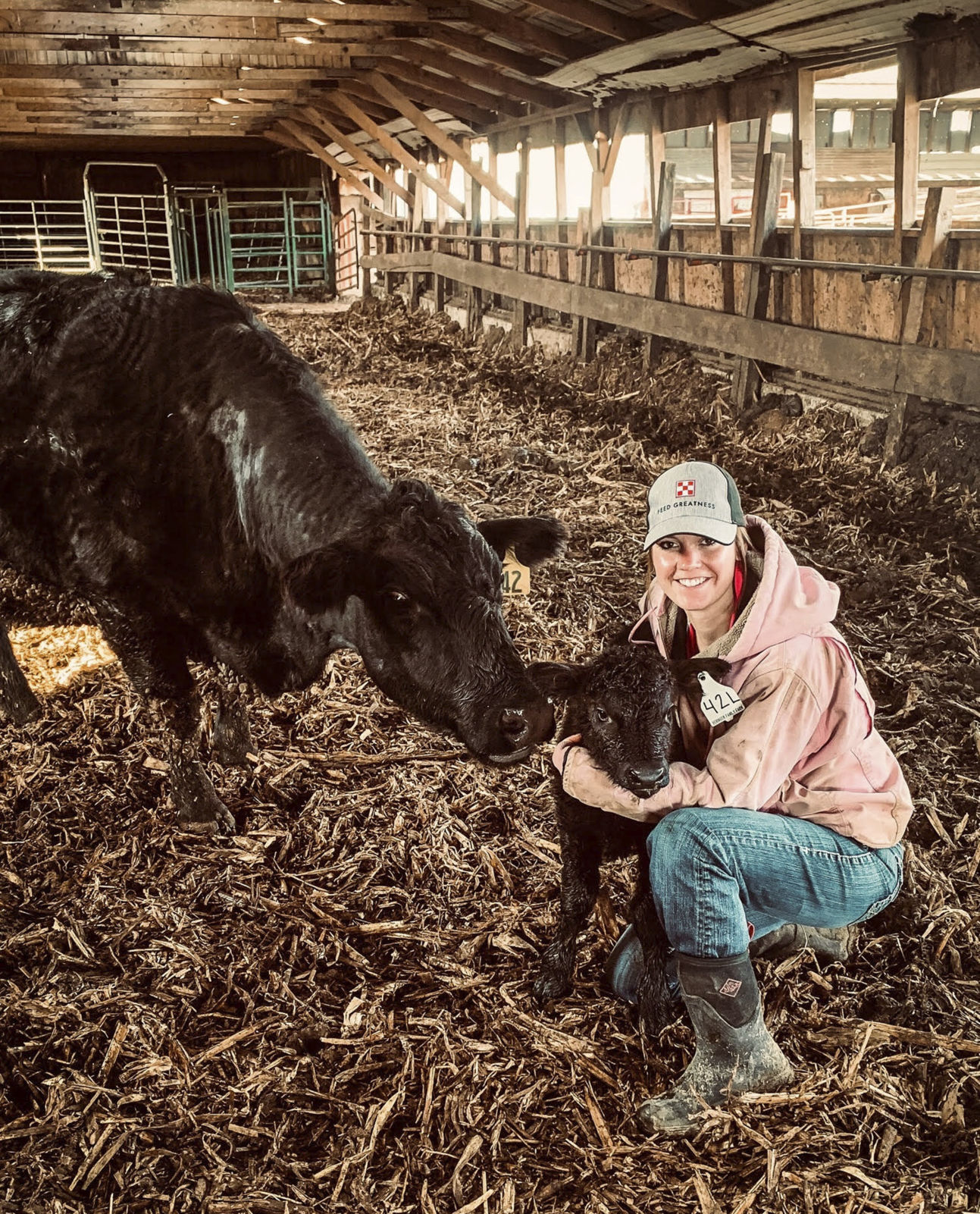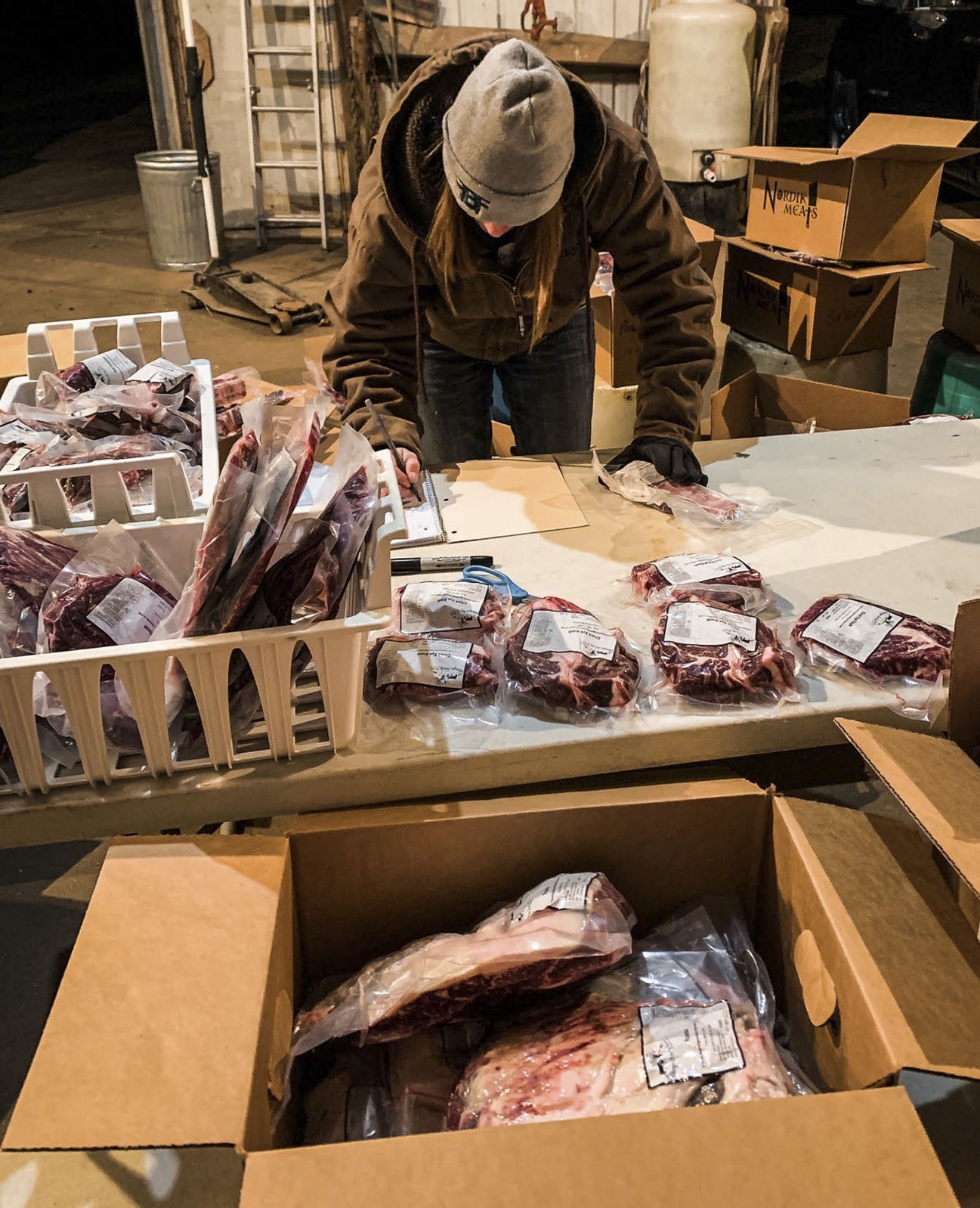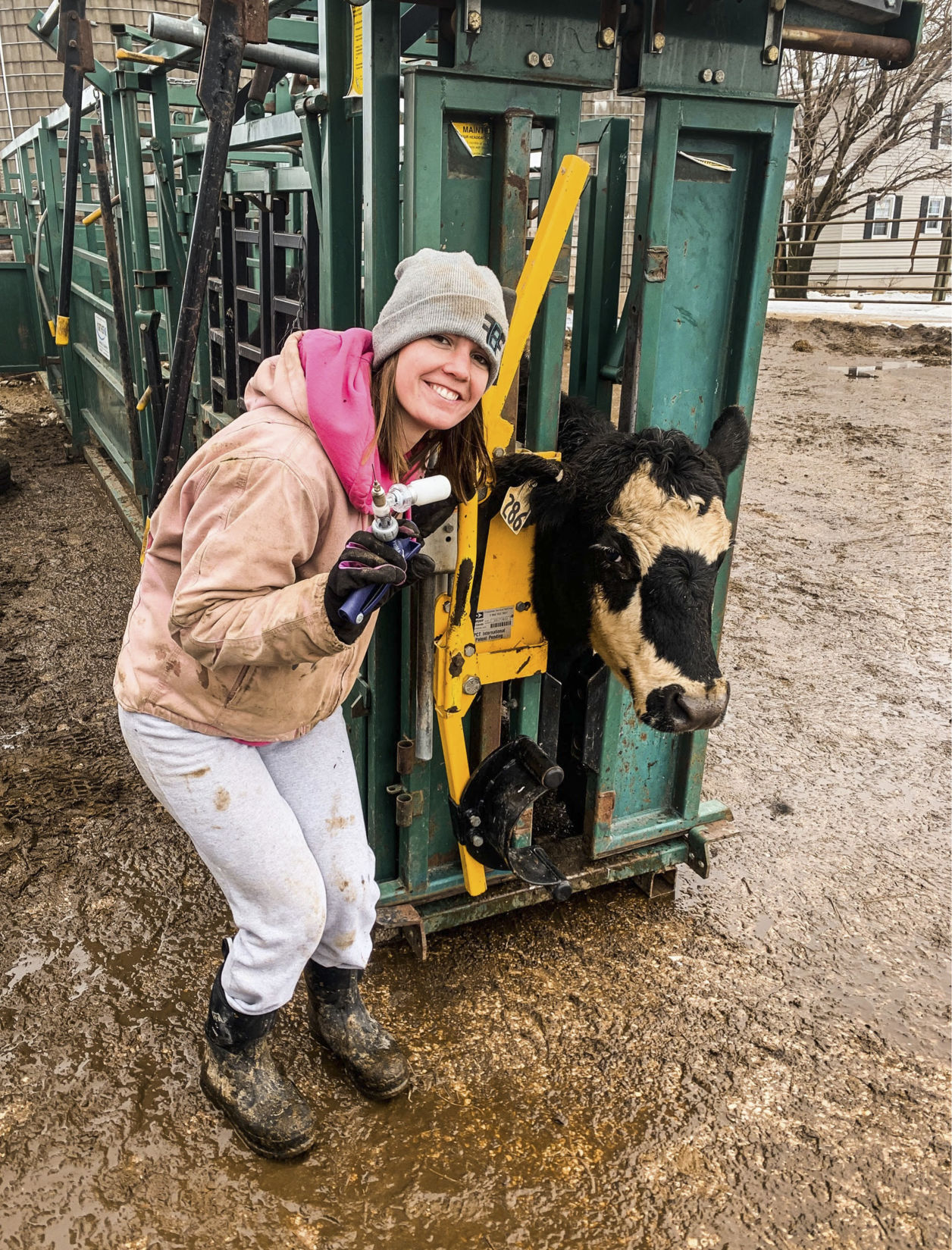CASCADE, Iowa — Early every morning, Lillie Beringer hopped inside her grandpa’s truck and sat beside him, eager to begin the day.
If she wasn’t pulling open or closing gates for her grandpa or dad, she was cutting and raking hay or doing anything she could to be a part of the life she loved.
“Ever since I was a little girl, I was always outside helping,” Beringer said. “My punishment was actually having to stay inside.”
The 24-year-old is a third-generation farmer in Cascade. Her passion for farming stemmed from years of working alongside her dad, uncle and grandpa as they tended to their cattle farm.
Lillie is one of five children — along with Nicholas Beringer, 31, Jesse Beringer, 28, Lee Beringer, 23, and Holly Beringer, 21 — but she was the only one with a desire to one day take over the farm. It was her world, she said.
But it all happened sooner than expected.
In March, she purchased her grandparents’ farmstead in order to keep it in the family. In addition, she bought 80 cows and launched her own business selling cuts of dry-aged Angus beef.
Farming isn’t her only job, though. She also works full time for Purina Animal Nutrition, educating farmers in the area about proper nutrition and care for their cows.
“It’s a hard game in the agriculture industry, especially starting out,” she said. “There is no way I would be able to make it without the full-time job, especially given COVID(-19) circumstances.”
After her grandpa died in 2014, Beringer decided she would do whatever it took to keep the farm in her family’s name and make him proud, she said.
“He is my hero, so everything I do every day is to give back to what my grandpa did for me,” she said. “In the back of my head, I was like, ‘I need to make this work because I cannot let this whole farming legacy go down the drain.’”
Beringer said it is important for her to not only maintain her family’s legacy but educate others on farming and where their food comes from.
“My generation wants to know that farm-to-plate story,” she said. “I feel like it’s so important because the family farm thing is dying. There are not a lot of young people that want to continue to take it on. It doesn’t matter who you are — we need to eat to survive.”
Sheila Beringer can’t remember a time when her daughter didn’t love being outside. That’s all she wanted to do.
“She would go with Grandpa and check the cows and go to cattle sales,” Sheila Beringer said. “She’s just always been outside.”
Without her daughter’s passion, Sheila Beringer isn’t sure how much of the farm that she and her husband, John, would have been able to maintain.
“If she didn’t have that passion, then we wouldn’t be doing what we are today,” Sheila Beringer said. “My husband grew up farming. It’s a passion for us to keep it in the family because it is something that her dad and grandpa worked really hard for. I know she is going to do it.”
Lillie Beringer said her Angus beef business is still in the beginning stages, but she is excited for more people to learn about it and try it out. Two of her very first customers were Patti and Larry Hager, of Bellevue.
Patti Hager said she and her husband were longtime farmers and miss the convenience of finishing their own meat. But now, they are able to get great quality beef while supporting an aspiring farmer, she said.
“We just think that it’s great, and we wish her a lot of success,” Hager said. “We hope more people take advantage of her products and the time she has put in to do it right. She is a great land steward.”
Beringer said other barriers she has faced while building her reputation in the agriculture industry have been the stereotypes and stigmas that come with being a woman.
“I feel like I have to work a lot harder, and you have to initially get over that step where you have to prove yourself or show you have some accountability before they take you seriously,” she said. “Pre-COVID, I would go to random farms (for work), and some people would be like, ‘What are you doing here? You don’t know anything.’”
Beringer said she plans to be a catalyst in changing that perception.
“It used to upset me, but for the most part, I just take it as a way to bring that conversation up and say, ‘That might have been how it’s been in the past, but just because I am a girl doesn’t mean I can’t do it,’” she said.




